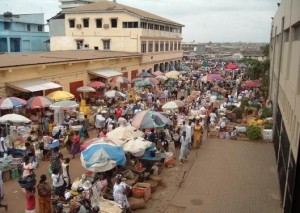ISODEC calls for improvement in Ghana’s human development index
 Mr Bernard Anaba, a Policy Analyst at Integrated Social Development Centre (ISODEC), has called for improvement in Ghana’s Human Development Index.
Mr Bernard Anaba, a Policy Analyst at Integrated Social Development Centre (ISODEC), has called for improvement in Ghana’s Human Development Index.
The Human Development Index measures the average achievement of a country between zero and one, in key dimensions of human development; such as health and life expectancy, water and sanitation, education and knowledge and a decent standard of living.
He said the Government needed to ensure that minimum requirements for the human development index are met.
Mr Anaba made the appeal in an interview with the Ghana News Agency on the sideline of a dissemination workshop on the Budget Analysis Report 2018 report in Accra.
The workshop on human development index, a project funded by the Ford Foundation, was attended by stakeholders from the Ministry of Finance, Ministry of Sanitation and Waters Resources, the Ministry of Health, Ministry of Education and civil society organisations.
Mr Anaba said the project seeks to look at Government’s funding in the area of human development index such as water, sanitation, health and education; and how they were impacting on the economy.
He said according to the UNDP human development index, Ghana was way below average; which the nation must improve upon.
The report said there were also numerous social interventions by the Government and donors and National Social Protection Strategy (NSPS) develop in 2007 to serve as coordinated strategy for social protection in the country.
It said, however, these were all scattered and uncoordinated interventions under different ministries; adding that “there have been concerted efforts from 2015 to bring all these social interventions under the Ministry of Gender, Children and Social Inclusion”.
It said within the period, government failed to meet the minimum public expenditure ratio of 25 per cent of public expenditure devoted to human development; this was a reflection of government not being able to meet the minimum requirement of both the Dakar and Abuja declaration on education and health respectively.
The report said this implies that under expenditure of government expenditure would lead to low human development.
It said the Government also failed to meet the social allocation ratio of a minimum of 40 per cent expenditure except in 2015 when it achieved 45.5 per cent.
It explained that this shows that the percentage of public expenditure earmarked for social services, including nutrition, health and education were below standard within the given except for the year 2015.
The report the Government failed to meet the minimum of 50 per cent expenditure on social priority which was devoted to human priority concern components such as basic education, primary health care, basic water systems and sanitation were likely to feature.
It noted that the non-attainment of this minimum requirement by Ghana over the years would translate into under development.
It said the Government had done very well in terms of meeting the human expenditure ratio of five per cent expenditure except for 2012 when it was slightly below at 4.9 per cent.
“Government needs a comprehensive social development policy and framework within which to embed the social protection policy framework,” it said.
Source: GNA
